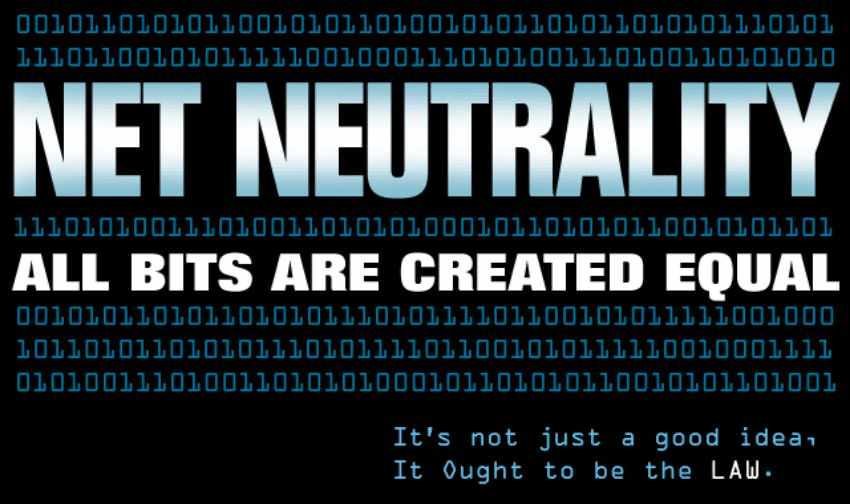Net Neutrality: Today millions people protested for net neutrality and an open internet. The "Battle for the Net" or Battle for the Net, supported by major technology companies like Amazon, Google and Netflix, and hopes to stop an imminent abolition of the existing network neutrality rules.
The debate began ten years ago when some torrent users could not download their favorite TV shows, but today it does not seem to be a fight for pirates only today. 
Net Neutrality Let's see what happened from the beginning:
Today, millions of people are complaining about the FCC plan to abolish the rules on internet neutrality introduced by the former Obama administration.
In this “battle for the Internet”, or Battle for the Net, many prominent activist groups and companies joined, such as Amazon, BitTorrent, Dropbox, Netflix and even Pornhub.
Under current network neutrality rules, there is a clear standard that prevents ISPs from blocking, restricting, and prioritizing "legal" traffic.
If the existing network neutrality rules disappear, some fear that the restriction and "quick lines" for some services will become commonplace.
Historically, there has been a strong relationship between net neutrality and piracys. The first signs of what was to come were first seen in 2007, when Comcast began throttling BitTorrent traffic in an effort to lighten the load on its network.
When this informal practice was revealed, it triggered the first broad debate on net neutrality. The first discussion was the setup for the FCC Open Internet Order that was released three years later.
The Open Internet Order was the foundation of the Net Neutrality rules issued by the FCN 2015. The major change compared to the previous regulations was that Internet service providers could be regulatory bodies under the Title II.
According to the Regulation, Internet Service Providers will be allowed to exclude any illegal traffic, including trafficking of content that infringes copyright.
Net Neutrality What is to come if…
In fact, FCC's new Internet neutrality regulation states the following:
“Nothing shall prohibit reasonable efforts by a broadband service provider access on the Internet to address copyright infringement or other illegal activity.”
The main reason for the adoption of the above regulation by the FCC is that the copyright infringement affects the US economy, so Internet providers are free to take the appropriate measures if they need to intervene. This includes the voluntary censorship of pirate websites, which MPAA and RIAA want and are constantly pressing for.
“For example, the no-blocking regulation should not stop any prohibition rule to protect intellectual property rights, which has negative consequences for the economy, nor should it protect child pornography. We reiterate that our rules do not amend copyright laws and are not intended to prohibit or discourage voluntary practices undertaken to address or mitigate the occurrence of copyright infringement,” the FCC explains.
This gives ISPs a great deal of room for maneuver. ISPs could block access to The Pirate Bay and other pirated websites completely voluntarily, for example. Banning BitTorrent worldwide is also an option, as long as it is accompanied by a good excuse for "better network management".
The worrying part is that ISPs themselves will be able to decide which traffic or what websites are illegal. This could potentially lead to excessive blocking. At present, there is no indication that we will see this, but the net neutrality rules do not prevent companies from doing so.
What must be clear is that the fight for net neutrality is no longer a fight for pirates.
Today's protest is reminiscent of the great "Internet blackout" uprising over the anti-piracy law SOUP.



